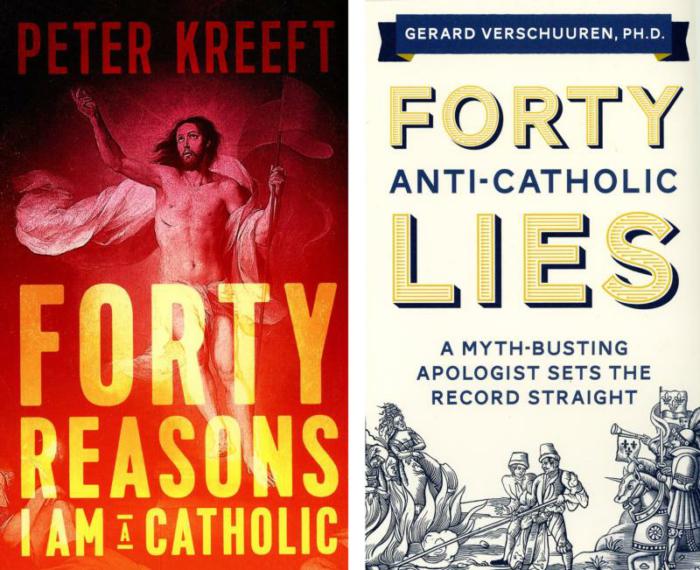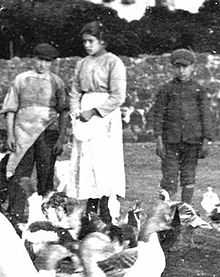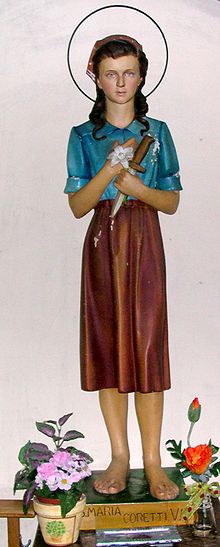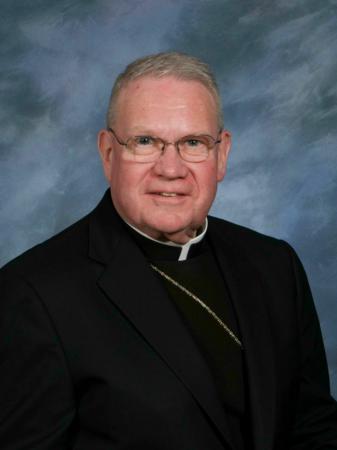Lectio Divina Skit
Characters: Brother Guigo, Brother Antonias, Lectio, Meditatio, Oratio, Contemplatio
Setting: Monastery
Brother Guigo: Congratulations Brother Antonias on advancing from Postulant to Novice.
Brother Antonias: Thank you. What’s next in my formation?
Brother Guigo: Getting to know God personally.
Brother Antonias: What? What do you mean? Don’t I know Him already?
Brother Guigo: You know God intellectually but you need to know Him with your heart?
Brother Antonias: How do I do that?
Brother Guigo: You need to learn to listen to Him. You need to recognize His voice. You need to converse with Him.
Brother Antonias: Wow! How do I do that?
Brother Guigo: Through a method of prayer called Lectio Divina.
Brother Antonias: Don’t I pray enough? I pray the Divine Office, five times a day. I pray the rosary. I pray novenas and litanies.
Brother Guigo: Very good, little brother. You talk to God but do you listen to Him?
Brother Antonias: huh?
Brother Guigo: Lectio Divina is an encounter. You will learn to be a friend of God. You will listen to His voice and converse with Him.
Brother Antonias: I’d like to learn this. How do I begin?
Brother Guigo: I have four friends that will teach what you need to know. Ah, here comes the first one. Let me introduce you to Lectio. Lectio is Latin for “I read.” The word lectern (points to the lectern) comes from Lectio. The place where someone stands to read.
Brother Antonias: I thought that was an ambo.
Brother Guigo: Very good, Brother. An ambo is a lectern. Ambo is Greek. Lectio is Latin.
Brother Antonias: What about a pulpit?
Brother Guigo: You’re pulling us off subject. A pulpit is like an ambo and lectern, but I want to talk about Lectio. So Lectio, tell us what you do.
Lectio: One reads something spiritual to promote conversation with God. It is called Divine Reading or Lectio Divina. It’s a deep reading in a calm and tranquil state of mind. One biblical basis is Psalm 46:10, Be still and know that I am God. Read the passage several times and pay attention to the tone, the nouns, and the descriptions. What is the theme—the point? You could try thinking of yourself as a disciple of Jesus, hearing this for the first time. If you don’t understand, you could google the verses. There are also books called commentaries. A good Biblical Commentary explains the Bible verse by verse. The footnotes to the passage are helpful too.
Brother Antonias: This sounds time consuming.
Lectio: Well, yes it is. It depends on how much you’re reading. Just reading a few verses could be five minutes, maybe. But more verses, or a paragraph, would take longer. Many people do this in Adoration.
Brother Antonias: It doesn’t seem hard to do. Is it considered praying?
Lectio: Oh yes. You are listening to God, Himself. You are reading His words to you. He is speaking to you. Those words you are reading is God conversing with you.
Brother Antonias: WOW!
Lectio: Are you open to the Holy Spirit leading you to understanding?
Brother Antonias: Oh yes! I want to hear more.
Lectio: Then let me introduce you to Meditatio.
Meditatio: Brother Antonias, when you read do you think about what you read?
Brother Antonias: Of course.
Meditatio: Good because that’s the next step. Thinking deeply. Lectio involves reading but it is more like listening to the inner message of the words delivered through the Holy Spirit. Meditatio isn’t the reading part, but rather communion with God. You are going to ponder the meaning and listen. A few lucky people hear an actual voice. But for most of us, God speaks through our thoughts.
Brother Antonias: God speaks to us in our thoughts. So if the house is on fire and my mind screams, “Get out.” That’s God.
Meditatio: Yes and so is the fireman who comes in and tells you to “Get out.” But back to your spiritual reading, you read the passage and look at from various angles. Look at the verbs: are they violent, negative? What about the nouns? Now stay open and allow the Holy Spirit to inspire a meaning for you. Sit and listen.
Brother Antonias: How do I know if what I hear is from God? What if it’s Satan?
Meditatio: If it’s from God it will be good and give you peace. You will complete this time with God feeling happy and peaceful. And that’s not all. You’ll want to tell God how you feel and what you think. This encounter will lead you to conversation or prayer and this part is called Oratio.
Brother Antonias: Am I the orator or God?
Oratio: Both of you, little brother. I am Oratio and I will explain the next step in Lectio Divina. This is where you express what you are feeling, and thinking. All the while remaining attentive to the Holy Spirit’s gentle promptings guiding the direction of the conversation.
Brother Antonias: What if I have nothing to say?
Oratio: Tell God. And I’m sure you’ll be prompted to reread the spiritual reading again and you’ll see something to talk about.
Brother Antonias: So Lectio Divina is reading, meditating, and conversing with God. Read, think, and pray. I got it.
Oratio: That’s not all. There’s a finishing step. And this is where Contemplatio comes in.
Brother Antonias: Like Contemplation? Wasn’t that Meditatio or meditation?
Meditatio: Close but I like to think that Meditatio is more work. I’m active, whereas Contemplatio is inactive. Would you agree Contemplatio?
Contemplatio: I like to think of Contemplatio as resting rather than inactive. And I have an even better image to distinguish between us. Think of feeding an infant its milk. The feeding is meditatio and when the baby is finished, it is lifted on the shoulder and patted and rubbed where the baby rests contentedly in love. Contemplatio is the infant on the shoulder.
Brother Antonias: I like that image. Let me apply it to Lectio Divina. I read, I meditate, I pray, and I rest in love.
Contemplatio: Yes, it’s so nice to rest in the Holy Spirit. You might thank God, here.
Brother Antonias: I can see where you might be led to praise Him, too.
Contemplatio/Oratio/Meditatio/Oratio: Amen.
Brother Guigo: Well, Brother Antonias, what do you think of Lectio Divina as prayer, now?
Brother Antonias: I can’t wait to add Lectio Divina to my daily routine. I can pray the Rosary, my Breviary, Litanies, Novenas and now Lectio Divina.
Brother Guigo: You’ll have to set aside time to do this. It’s not like going for a walk praying the rosary, or reciting a litany in chorus. Lectio Divina needs silence and time.
Brother Antonias: I know. Lectio Divina makes sense as a natural movement: read, meditate, converse, and complete with resting in Love.
Brother Guigo: Yes, it’s a natural development. With practice using the guidelines of Lectio Divina you will find yourself doing more and more listening and resting in the Holy Spirit. This method will be spiritually fruitful for you if you open yourself to receive what God wants to give you. May God lead you, love you, and bless you.
Contemplatio/Oratio/Meditatio/Oratio: Amen.



























